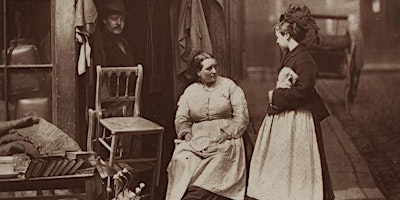You must login before you can post a comment.
- 🍻
The Victorian Book I Never Wrote, or Why I Never Became a Specialist on Bri
Uncategorized
The Victorian Book I Never Wrote, or Why I Never Became a Specialist on British Art
Van Gogh – my thesis topic – was, I suggest, a Victorian artist (at heart), and deeply influenced by the philosophy of Thomas Carlyle. Then I taught at Manchester University and I studied the city’s Pre-Raphaelites collection through a feminist and Marxist lens, even when these works were dismissed by my modernist colleagues as aesthetically vacuous, and, at best, a sociological curiosity. My first PhD student, Caroline Arscott, now a leading scholar in British nineteenth-century art, and I initiated a research programme in 1980 into the curious absence of visual representations of the industrial city in British art. As an outcome of these early initiatives, and influenced by Foucault’s work on disciplinary society, surveillance and bourgeois sexuality, in early 1990 I almost completed a book on class, labour, the city and the body in the nineteenth century, drawing together street photography (John Thomson), high-end illustration (Doré’s London: A Pilgrimage), Munby’s photographs of working women, and painting from Frith to Herkomer. Lost on now unreadable hard disks, preserved on crumpled computer printer outs, this ‘book’, which a casual peer-reviewer stymied at birth, returns to me now as a historical artefact of a moment in my history of art history that made such a book possible then and now impossible to resurrect. My question, focussing on my lost studies of British art, concerns the theoretical resources and paradigms that shaped such possibilities for critical thinking with, rather than conventional histories of, the image where class, gender, labour, sexuality and representation were such rich and urgent issues because they concerned the case of British urban and industrial modernity.
Speaker's biography
Griselda Pollock is Professor of Social and Critical Histories of Art and Director of CentreCATH (Centre for Cultural Analysis,Theory & History) at the University of Leeds. Having started as a scholar nineteenth-century European art, she has spent four decades developing an international, queer, postcolonial feminist analysis of art’s diverse histories focussing increasingly on twentieth century and contemporary art practices and critical debates in curatorial art history articulated in her concept of the ‘Virtual Feminist Museum’ (with a special focus on issues of trauma and aesthetic transformation in art and film). Author of many books and articles, her recent publications include a monograph, After-Affects/After-Images: Trauma and Aesthetic Transformation (MUP 2016), Charlotte Salomon and the Theatre of Memory (Yale, 2018) and a collection edited with Max Silverman on art and totalitarian terror, Concentrationary Art: Jean Cayrol, the Lazarean and the Everyday in Post-war Film, Literature, Music and the Visual Arts (Berghahn 2019). Forthcoming are The Case against “Van Gogh”: Memory, Place and Modernity (Thames & Hudson) and Is Feminism a Bad Memory? (Verso).
Event Timings
18.00-19.00 Lecture
19.00-19.30 Q&A
19.30-20.00 Drinks reception
Image: John Thomson and Adolphe Smith, ‘Old Furniture’ in Street Life in London (1877). Victoria and Albert Museum, London. Image Number: 2006BF6313




